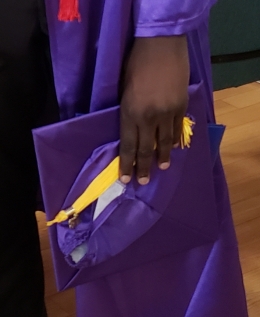
I used to tell students, “Don’t plan on summer school.” I didn’t want kids to feel complacent during the year and figure, “Oh, well, I’ll just go to summer school if I don’t pass.” To create a sense of urgency, and scarcity, I’d say things like, “We might not be able to give you this class in summer school so you’d better pass now.”
Yet now, I’m reminded again of why summer school is special. For kids, they’re with their friends instead of being bored at home. Each classroom, blessedly, has a cold, blasting air conditioner.
For staff, summer school is a unique time with a small group of students.

 Last year in the 9th grade, Robert* had a rough start. He would argue with directions, wander hallways, and frequently cut classes. We were alarmed to see these habits so early in his high school career and did our best to address his behavior.
Last year in the 9th grade, Robert* had a rough start. He would argue with directions, wander hallways, and frequently cut classes. We were alarmed to see these habits so early in his high school career and did our best to address his behavior.
